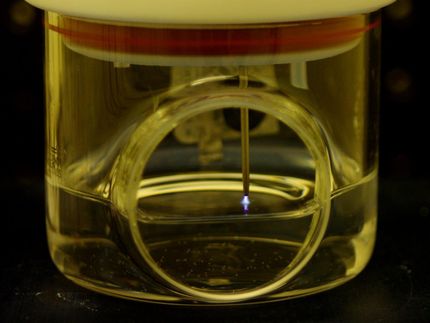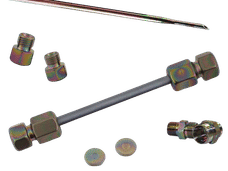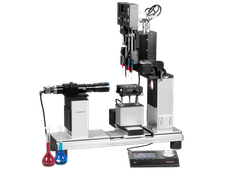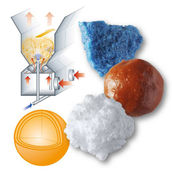Plasma technology for solvent-free utility wood
ttz Bremerhaven is evaluating the effectiveness of the process with a genetic detection method
Advertisement
In order to raise the competitiveness of wood compared to other materials, it is necessary to develop a cost-efficient method of wood protection which is free of toxic chemicals and nevertheless guarantees the wood's long durability. DURAWOOD, a research project funded by the European Union, has set itself the objective of developing a cost-effective, ecological, and high-performance method: the so-called DURAWOOD process uses electrical gas discharge (plasma) to treat wooden surfaces. The aim is to alter the surface characteristics of the wood so that wood preservatives can adhere to it better and thus smaller amounts of fungicide be needed.
So that wood is attractive for customers, it must be possible to guarantee the durability of treated wooden facades for at least 5 to 8 years and without the need for any additional maintenance. New EU legislation (2004/42/EC) demands the replacement of solvent-based wood preservatives for exterior purposes. However, facades which have been treated with water-based preservatives are more susceptible to discolouring and damage from mould, blue-stain fungi, and other wood-decay fungi. The aim is for a pre-treatment of the wood by means of plasma tech-nology to improve the effectiveness of this water-soluble wood preservative.
Plasma technology seals the wood surface
The plasma technology is based on applying the principle of electrical gas discharge where a so-called plasma is temporarily produced. The plasma is a gas or gas mix which has been partly or fully ionised and thus contains free charge carriers such as ions, charged molecules or electrons. The plasma is produced with the aid of a DCSBD (Diffuse Coplanar Surface Barrier Discharge) electrode of the newest genera-tion. The wood is transported past the electrode and treated section by section with plasma. The aim of the plasma treatment is to change the characteristics of the wood surface, whereby two applications are used: On the one hand, the adhesion of coatings subsequently applied, such as water-based wood preservatives, is improved by means of a hydrophilisation of the wood surface, and on the other hand the wettability of the wood can be reduced by a marginal variation in the plasma parameters, as a result of which hydrophobic surfaces are produced which increase the water resistance of the wood.
Genetic detection method for mould
The DURAWOOD technology aims to facilitate a cost-efficient, durable, and environmentally friendly wood preservative and to strengthen the competitiveness of the European wood-processing industry. To test the efficiency of this new approach, the Molecular Genetics Department at ttz Bremerhaven is developing a rapid detection method for wood-decay fungi, with which the woods treated with the DURAWOOD process are being tested for their effective protection against fungi. For this purpose, pure cultures of the fungus being studied were incubated together with the wood either treated with DURAWOOD or untreated. The next step investigates how far the fungus has grown into the wood, using the highly sensitive PCR method, which is able to detect even only a few fungus cells.
ttz Bremerhaven is one of three research partners. Together with IRIS (Innovacio i Recerca Industrial i Sostenible, Barcelona), the Project Coordinator, and the Slovak University of Technology in Bratislava, ttz is a research service provider in the consortium. The consortium's industrial partners are composed on the one hand of the following wood-processing firms: Ing. Ján Šestina – SETA from Slovakia, Kartas Kontrplak Sanayi Ticaret from Turkey, and Aryecla, S.L. from Spain, and on the other hand of the following companies in the supply chain of the targeted technology: Plasma Technologic s.r.o. from the Czech Republic, which is specialised in plasma technology; PAM-ak s.r.o. from Slovakia and SETAS KIMYA SAN AS from Turkey are both manufacturers of wood coatings.































































